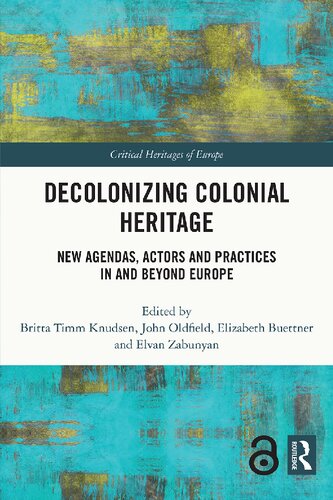

Most ebook files are in PDF format, so you can easily read them using various software such as Foxit Reader or directly on the Google Chrome browser.
Some ebook files are released by publishers in other formats such as .awz, .mobi, .epub, .fb2, etc. You may need to install specific software to read these formats on mobile/PC, such as Calibre.
Please read the tutorial at this link: https://ebookbell.com/faq
We offer FREE conversion to the popular formats you request; however, this may take some time. Therefore, right after payment, please email us, and we will try to provide the service as quickly as possible.
For some exceptional file formats or broken links (if any), please refrain from opening any disputes. Instead, email us first, and we will try to assist within a maximum of 6 hours.
EbookBell Team

5.0
68 reviewsDecolonizing Colonial Heritage explores how different agents practice the decolonization of European colonial heritage at European and extra-European locations. Assessing the impact of these practices, the book also explores what a new vision of Europe in the postcolonial present could look like.
Including contributions from academics, artists and heritage practitioners, the volume explores decolonial heritage practices in politics, contemporary history, diplomacy, museum practice, the visual arts and self-generated memorial expressions in public spaces. The comparative focus of the chapters includes examples of internal colonization in Europe and extends to former European colonies, among them Shanghai, Cape Town, and Rio de Janeiro. Examining practices in a range of different contexts, the book pays particular attention to sub-national actors whose work is opening up new futures through their engagement with decolonial heritage practices in the present. The volume also considers the challenges posed by applying decolonial thinking to existing understandings of colonial heritage.
Decolonizing Colonial Heritage examines the role of colonial heritage in European memory politics and heritage diplomacy. It will be of interest to academics and students working in the fields of heritage and memory studies, colonial and imperial history, European studies, sociology, cultural studies, development studies, museum studies, and contemporary art.